
Share about us & get a complimentary Sunday Delight Pillow
As simple as, click on the "share now", share & getting the goodies
 By Alphonse Reddy
By Alphonse Reddy 0 Comments
0 Comments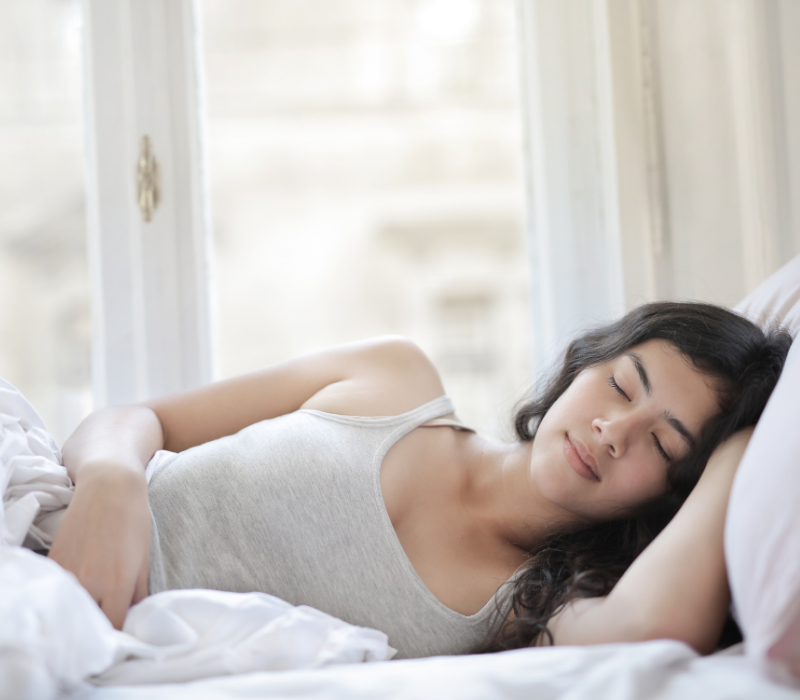
Do you think you are getting less sleep or more than what is deemed necessary? Take heart. You are not alone. As interesting as it gets, research studies time and again has proved that there is a common sleeping pattern that runs across every country, which is well documented, as this blog will attempt to explain. In what is this sleep pattern related to the happiness quotient of a country, given that quality or poor sleep can impact an individual’s health with varying levels of effect? Does it lead to economic prosperity? Generally speaking, yes; it can influence the conscious levels on a deeper level as poor or deprived sleep can lead to depression, diabetes, heart failure or stroke, high blood pressure and heart attack. Other potential problems include depression, obesity, lower sex drive and impairment in immunity. Chronic sleep deprivation can affect your physical appearance too!

A recent study by 'Sleep cycle',has found out the countries that get the most and least sleep, putting New Zealand at the top of the table, with the average sleeping for 7.5 hours per night. Finland, Australia, the Netherland, the UK and Belgium are other countries that rank highly for optimal sleep, with Ireland not far behind in the rankings. But is this the case with all developed economies? How is their sleep level? Believe it or not, Japan and South Korea are the worst countries in this table. The issue of sleeplessness in Japan, according to a nationwide epidemiological study of insomnia, is related to “Karoshi” that literally translates as "overwork death" or “death due to the lack of sleep”. While the cases of Karoshi are usually rare, it must be noted that individuals affected by sleep deprivation will lose their precious health long before it would whittle away at their ability to focus on their job.
What’s more concerning is that the number of sleepless nights will compound into a productivity issue that accounts for an equivalent number of working days being lost or absenteeism. According to Rand Corporation, the US and Japan lose a substantial number of days every year due to people deprived of quality sleep closely followed by the UK and Germany. All these lost days have a direct impact on the country’s economic output. The US, Japan, Germany and the UK lose $411 billion (2.28% of GDP), $138 billion (2.92% of GDP), 60 billion (1.56% of GDP) and $50 billion (1.86% of GDP) a year respectively.
It has also been proved that even little improvement in sleep can translate into much higher economic gains. To elaborate, if people in the US who sleep less than six hours a night receive 6-7 sleep hours, the economy would shoot up by $226.4 billion. This outcome is nothing short of extraordinary when just an extra hour of sleep is easy to add. This incremental improvement could add nearly $75.7 billion to the Japanese economy. In 2018, a Japanese wedding company called Crazy remunerated its employees who get at least six hours of sleep a night with cash-bonus. Besides the health aspect that we’ve already discussed in detail, such employee benefits, according to the company, would help strengthen the country’s overall economy itself.
Respondents in Saudi Arabia, Egypt, the Philippines and Malaysia are also found to be sleep deprived. If you think the average of 7.5 hours of sleep a night that the Kiwis enjoy is higher than any place in the world, even that might not suffice. The American National Sleep Foundation suggests that adults receive 7-8 hours of sleep a night for better health and well-being.
The emergence of Big Data has heightened research levels such that the engineers of ENTRAIN have come up with an app, drawing a much larger and diverse pool of data across different geo locations for analysing and ranking countries based on the amount of night sleep (in hours) people get. In their study, in 2016, in Science Advances, they reported on a pattern and trend observed worldwide. The study placed Netherlands right at the top of the table followed by New Zealand, whilst Singapore and Japan were on the lower end of the rankings. In general, the study also showed that countries that are geographically in close proximity and share similar cultures had similar night-time sleeping patterns irrespective of global trends. These trends also apply for children, where children in Hongkong, according to a study in Sleep Medicine, went to bed 3 hours late, on an average, compared to those in New Zealand.
Another study conducted in the US by The Centers for Disease Control and Prevention (CDC) reports that deprived sleep is almost a ‘public health problem’ with over one-third of adults not receiving enough night-time sleep regularly. However, the report mentions, the problem is not limited to the US alone, but a global phenomenon leading to serious health and social issues. It also cites various lifestyle factors associated with adolescent sleep such as alcohol consumption, psychological stress, lack of physical activity, smoking and excessive use of web & mobile devices at night, among others. The key findings of the report also include how poor sleep is related to lower productivity, impact on the country’s economy, high mortality risk and health issues (as already mentioned above). As like other studies, it concludes that small changes such as going to sleep an hour early, or getting an extra hour of night-time sleep can improve the overall productivity rate, and thereby a country’s economy at large.
The study also recommends the following measures to treat sleep complications:
1. Individuals can establish consistent wake-up times, reduce the use of mobile devices before going to sleep and exercise regularly. (We also recommended the use of the right bed mattresses to improve the quality of night-time sleep among adults).
2. Employers can help staff with better workspaces, fight work-related physiological stress, and discourage excessive use of web-and mobile-device devices at office as well as home.
3. Public authorities can help health professionals raise awareness on getting quality night-time sleep among the working population through nation-wide seminars and workshops, and, if possible, even change school start times to promote sleep.
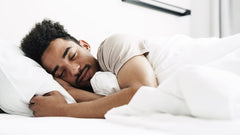
Sleeping position in Islam Sleep science has been gradually building momentum over the past couple...
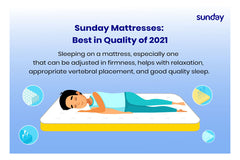
Mattresses are known to improve sleeping postures and circulation, which is essential for a healthy...
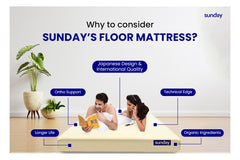
Everyone looks for comfort when it comes to sleeping and relaxing. And mattresses play a...

Choosing the correct type of mattress is the first step if you want a luxurious...
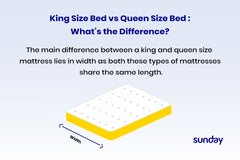
The world of mattress sizes can get your mind out of whack if not adequately...
Still confused? Call us on 080 4749 4649


Comments